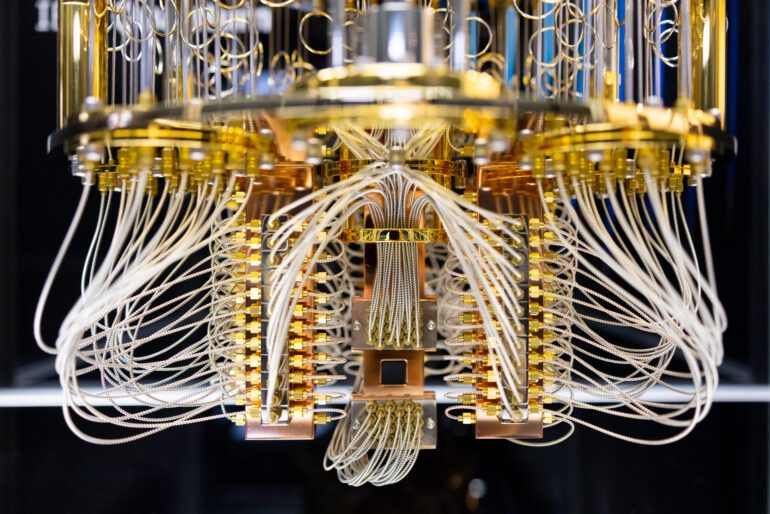TL;DR:
- Quantum machine learning combines quantum mechanics and machine learning, revolutionizing data processing.
- Quantum computers, with their qubits, can solve complex problems and process vast amounts of data simultaneously.
- Quantum machine learning algorithms enhance efficiency and accuracy compared to classical counterparts.
- Challenges include developing efficient algorithms leveraging quantum properties and large-scale quantum computers.
- Quantum neural networks mimic the human brain and excel in tasks like image recognition and drug discovery.
- Quantum computing improves data processing efficiency, reducing time and computational resources.
- The limited availability of large-scale quantum computers and quantum error correction techniques remain obstacles.
Main AI News:
The fusion of quantum mechanics and machine learning has given birth to a burgeoning field known as quantum machine learning. This groundbreaking discipline holds the promise of revolutionizing data processing and analysis, heralding a new era of insights and applications across diverse domains such as finance, healthcare, and artificial intelligence.
In recent years, quantum computing has witnessed remarkable advancements, with industry titans like IBM, Google, and Microsoft investing heavily in quantum hardware and software development. Quantum computers possess an unparalleled capability to tackle intricate problems that currently elude classical computers. Their prowess lies in the unique attributes of quantum bits, or qubits, which can exist in multiple states simultaneously, in stark contrast to classical bits that are confined to the states of 0 or 1.
On the other hand, machine learning, a subset of artificial intelligence, revolves around the creation of algorithms that learn from data and make predictions. By harnessing the potential of quantum computing, researchers are delving into the realm of quantum machine learning algorithms, which exhibit superior efficiency and accuracy compared to their classical counterparts.
An essential challenge in quantum machine learning lies in the development of efficient algorithms that can exploit the distinctive properties of quantum computing. Researchers are currently exploring various approaches, including the utilization of quantum circuits for performing linear algebra operations, which serve as the bedrock for many machine learning algorithms. Through the leverage of quantum computing power, these algorithms hold the potential to process and analyze data at unprecedented speeds, unveiling new patterns and insights that were once beyond reach.
Another area brimming with potential in quantum machine learning is the creation of quantum neural networks, drawing inspiration from the intricate workings of the human brain. These networks comprise interconnected qubits that possess the ability to process and store information, enabling them to learn and adapt to new data. Quantum neural networks have the capacity to outperform classical neural networks in diverse tasks such as image and speech recognition, natural language processing, and drug discovery.
Beyond algorithmic advancements and neural networks, researchers are also investigating the utilization of quantum computing to enhance the efficiency of data processing and analysis. For instance, quantum computers hold the potential to streamline feature selection, a pivotal step in machine learning that entails identifying the most pertinent variables within a dataset. By processing and analyzing data with unparalleled efficiency, quantum computers can significantly reduce the time and computational resources required for machine learning tasks, ultimately leading to more accurate and reliable predictions.
Despite the remarkable strides achieved in quantum machine learning, numerous challenges and unanswered questions persist. The limited availability of large-scale quantum computers remains a primary obstacle, as they are indispensable for testing and validating quantum machine learning algorithms. Additionally, the development of quantum error correction techniques is of utmost importance to ensure the dependability and resilience of quantum computations.
Conclusion:
The emergence of quantum machine learning signifies a paradigm shift in the market. By harnessing the power of quantum computing, businesses can unlock unprecedented efficiency and accuracy in data processing and analysis. This technology opens up new avenues for insights and applications across various industries, paving the way for transformative advancements in finance, healthcare, artificial intelligence, and beyond. To stay competitive, organizations should closely monitor the developments in quantum machine learning and explore opportunities for implementation in their operations.

